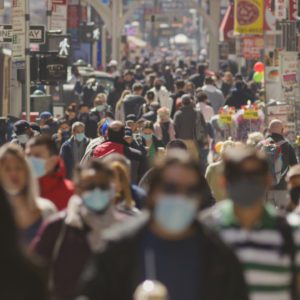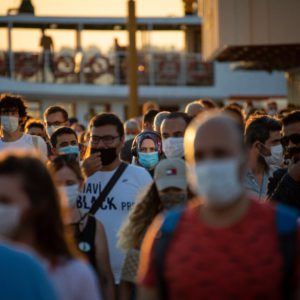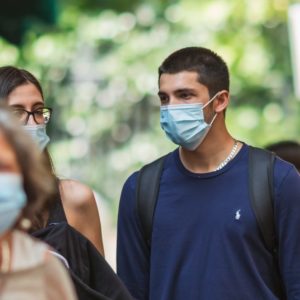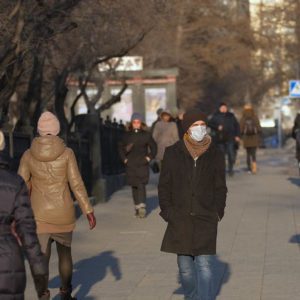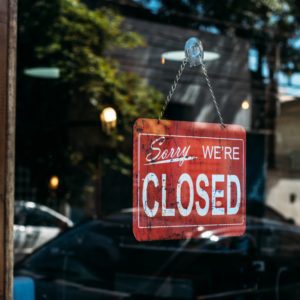The 2021 World Risk Poll has revealed that experience of harm from mental health has increased globally from 20% in 2019 to 25% in 2021. This isn’t surprising given we’ve been through a pandemic. While the data in the Poll shows that Covid-19 didn’t factor highly in most people’s safety concerns, it has been a contributing factor to people’s mental health, particularly in the workplace.
A great deal is known about the causes of poor psychological wellbeing across different occupational contexts. We know in maritime, for example, that worries about family and social isolation are some of the major risk factors for seafarers. The pandemic did not change these causes or their effects, but the unique circumstances of things like social distancing, lockdown and the ‘crew change crisis’, intensified, and transformed some aspects of mental health at work, creating some extraordinarily difficult experiences, like those of the first officer stuck on the vessel.
Using insight to protect mental health and wellbeing
In our report for Lloyd’s Register Foundation – The Impact of COVID-19 on Psychological Wellbeing in Occupational Contexts – we explore how the pandemic has shifted the agenda around mental health and psychological wellbeing. Based on interviews with expert practitioners and analysis of professional guidance and research studies, we discovered that line managers had to find different ways of monitoring and addressing mental health issues during the pandemic. For instance, the lack of physical presence around remote working made it far more difficult to recognise the signs that employees may be struggling with psychological wellbeing. Because of these unique circumstances, different kinds of conversations around mental health have started to emerge across occupational contexts.
Prior to Covid-19, the biggest challenge was often around raising awareness of mental health issues. Wellbeing professionals told us that there was now a need amongst employees for more detailed conversations around specific aspects of mental health (such as severe and enduring conditions).
This suggests that in the immediate future the way organisations think about mental health may need to change. Currently, the most widely adopted strategies are programmes such as Mental Health First Aid (MHFA). Despite being enormously successful in uptake – 1 in 100 working age adults in the UK are trained in MHFA – these programmes tend to be reactive and are not always part of a holistic whole-organisation approach to psychological wellbeing.
Ownership also tends to fall across Occupational Health and Safety and Human Resource Management practitioners and in some very large organisations can vary in tone and focus across functional areas and divisions. What is needed, post-pandemic, is strategies around mental health that are pro-active, engaged with employee voice, and tailored to the specific contexts in which an organisation operates.
Health and Safety is no longer just about compliance
The pandemic has affected the labour market in significant ways, with some employees reconsidering their career options and working lives as part of the so-called ‘Great Resignation’. But the pandemic has also changed the way that all of us think about safety and its relationship to wellbeing. Safety is no longer just about compliance. The pandemic has shown that working in a safe way can have enormous consequences for our wellbeing. For example, social distancing and remote working can produce social isolation in ways that mean work is no longer the primary source of social connection. Organisations that engaged in downsizing or restructuring during the pandemic may be perceived by employees to have broken the ‘psychological contract’ – the implicit sense of fairness and mutual obligations – in ways that will make rebuilding trust difficulty.
We refer to this longer-term shift in how safety and wellbeing are understood as ‘long psychological Covid’. This is the psychological impact of the pandemic as it relates to work and health. For instance, many groups of workers have had to take on board keeping others safe – such as customers, colleagues, or vulnerable people – which has come at some physical and psychological cost. We do not yet know what that longer term cost will be or whether employees will even want to return to pre-pandemic ways of working, given how their thinking about work, wellbeing and safety has changed.
Cross-functional team conversations are key
This means that the work of those practitioners who are involved in wellbeing will also have to change. As one practitioner in the maritime sector told us ‘I was hired five and half years ago to stop major injury and accidents and that role has really changed to say no, your work is also to look after wellbeing. You need to work with HR and that is pretty much the safety profession’. To do this, practitioners will need to find different professional languages to speak across established boundaries. Since terms like ‘psychological wellbeing’ or ‘psychological safety’ can mean different things to different groups, even getting these conversations started may require experimenting with terms and ideas. Our report contains a toolkit that can help to support this.
These conversations may become yet more complex in future years. If the wellbeing and safety agendas are critical to mental health, so too are the Equality, Diversity, and Inclusion (EDI) agenda and the Sustainability agenda. The threats to mental health and wellbeing are not just in the immediate work environment, but also come from the broader society and ecology in which the organisation sits. The pandemic has shown what happens to an employee wellbeing when organisations must rapidly respond to external circumstances. In times of stark economic division and severe ecological challenges, a whole range of agendas are likely to come together around employee mental health. Organisations will need to find a way to create meaningful and effective conversations across diverse stakeholders to stay on top of an expanding wellbeing agenda.



